2021 News Archives
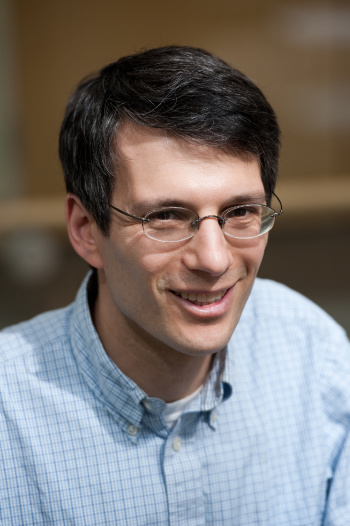
Andrew Berger honored for novel ways to monitor biological cells and tissues
Andrew Berger, a professor of optics at the University of Rochester, scatters light from molecules and cells in novel ways, working with collaborators from many disciplines to detect risk of bone fracture, signs of domestic abuse, and microplastic pollutants in our bodies.
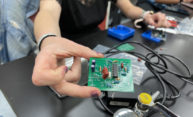
Rochester students’ award-winning device instantly detects sepsis via sweat
Rochester undergraduates have developed a fast, noninvasive, affordable, and eco-friendly way to diagnose sepsis, a life-threatening medical complication.
Every year, approximately 1.7 million American adults develop sepsis, a life-threatening complication that arises when the body has an overwhelming immune response to an infection. According to the Centers for Disease Control and Prevention, sepsis causes more than 20 percent of all deaths worldwide and one in every three deaths in US hospitals.
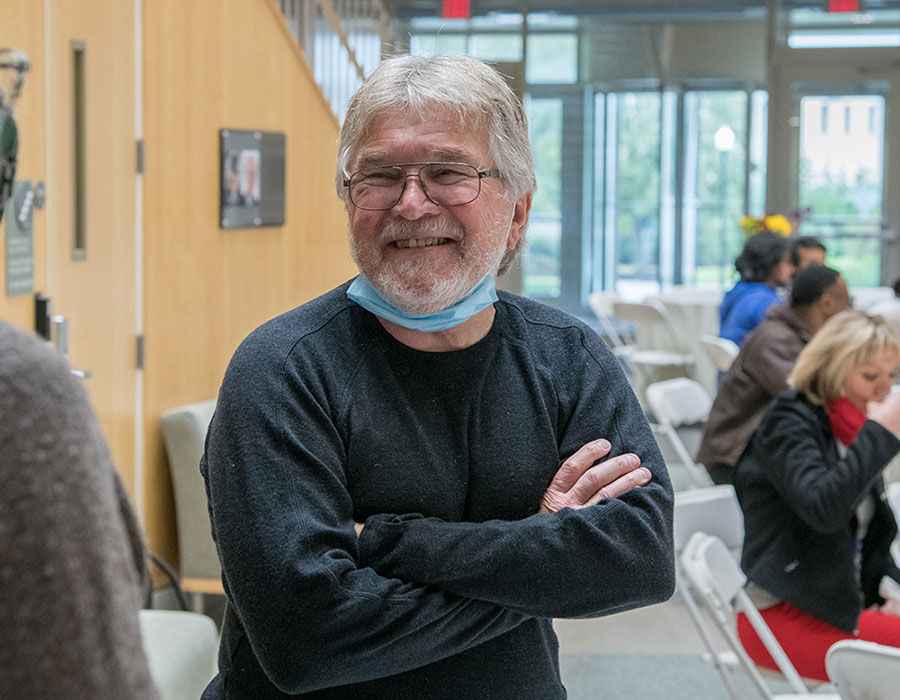
A heartfelt adieu after 49 years of service
Who was the “eyes and ears” in the Department of Biomedical Engineering (BME) during the pandemic, making sure everything was still running in Goergen Hall while most of his colleagues were hunkered down at home?
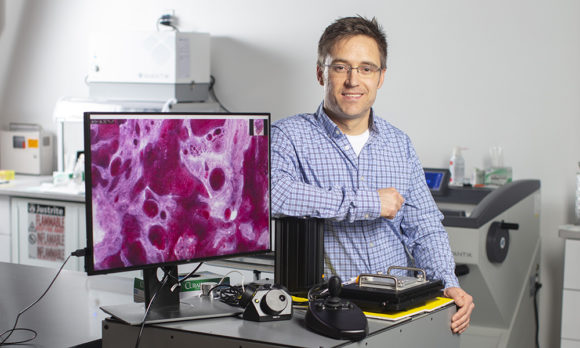
Meet one of Popular Science magazine’s ‘Brilliant 10’
Rochester biomedical engineer Michael Giacomelli is pursuing a quicker way to detect skin cancer.
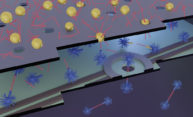
Smaller is better for detecting biomarkers of trauma and cancer
An inexpensive but highly sensitive biomarker detection system is being developed in a collaboration between the University of Rochester, the University of Ottawa, and Rochester-based SiMPore Inc. The team is using highly sensitive solid state nanopores to detect biomarkers of traumatic brain injury, bladder cancer, and other acute disorders in serum and urine. As illustrated in this cutaway view, the technique involves amplifying the biomarkers into DNA proxies (magenta spirals) coupled to gold nanoparticles. The gold nanoparticles are captured and concentrated on an ultrathin membrane (purple) with many nano-sized pores. UV light is then used to release the proxies, which bind to DNA-origami nanostructures (blue). The proxy-nanostructure combination gives unique signals that identify the biomarkers present in the original sample as they pass through the single nanopore sensor (green).

Accomplished University administrator heads back to the lab
Richard Waugh is anticipating getting back to his research lab full time after stepping down as the vice provost for research at the University of Rochester on July 1.
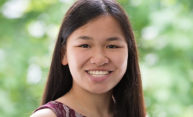
Madison Lang ’22 honored with ‘astronaut scholarship’
Madison Lang ’22, a biomedical engineering major from Fulton, New York, has been awarded a 2021 Astronaut Scholarship Foundation (ASF) award, known as an “Astronaut Scholarship.” These scholarships are awarded annually to undergraduate students in STEM (science, technology, engineering, and math) majors who are nominated in their sophomore or junior year by their college or university. In addition to high academic achievement, competitive applicants demonstrate passion and talent for scientific work along with a strong commitment to pursue research or technological advancements in their field following graduation.
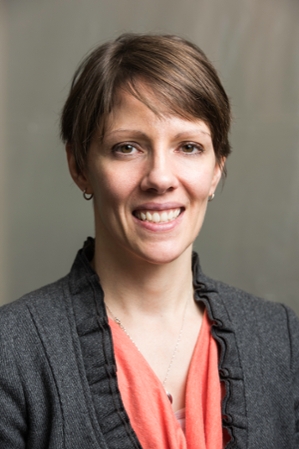
Professor Danielle Benoit awarded NSF Grant
Congratulations to Professor Danielle Benoit who was awarded a grant from the National Science Foundation (NSF) Division of Materials Research for her project, “Next-generation PEGylation: antifouling and immunoevasion semi-randomized zwitterionic peptides.” Co-Principal Investigators on this project are Andrew White and Minsoo Kim (URMC Microbiology and Immunology).
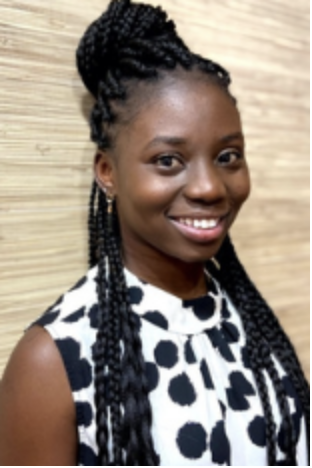
Marian Ackun-Farmmer Receives SFB Outstanding PhD Research Award
Marian Ackun-Farmmer was recently recognized with the Society for Biomaterials (SFB) Outstanding PhD Research Award. SFB is a multidisciplinary society of academic, health care, governmental and business professionals dedicated to promoting advancements in all aspects of biomaterial science, education and professional standards to enhance human health and quality of life.

Professor Benoit receives University Research Award
Congratulations to Professor Danielle Benoit, who has received a 2021 University Research Award with Professor Anne Meyer, associate professor of biology, and Professor Jin Xiao, associate professor of dentistry, for their project, “Biofilm-on-a-chip: Development of a microphysiological platform to revolutionize treatment paradigms.” University Research Awards (URA) provide “seed” grants for promising, high-risk projects, says Robert Clark, provost and senior vice president for research. The fund has been increased from $500,000 annually to $1 million with half of the funding coming from the President’s Fund, and the rest being matched by the various schools whose faculty members are recipients. Recipients must demonstrate that their projects favor new research with a high probability of being leveraged by future external funding.
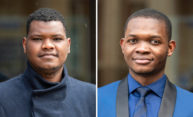
Students earn national award for conflict resolution project
Two University of Rochester sophomores have received a Davis Projects for Peace grant for a project in Africa that seeks to restore social bonds between warring religious groups.
Mohammed Bah ’23 is an international relations major from Monrovia, Liberia, and Miguel Yakouma ’23 is a biomedical engineering major from Bangui, Central African Republic. Their project is titled “The US-Bangui Peace Project: Building Peace through Capacity Development and Community Leadership.” Due to COVID-19 restrictions, the project will be conducted remotely via Zoom for three weeks in June.
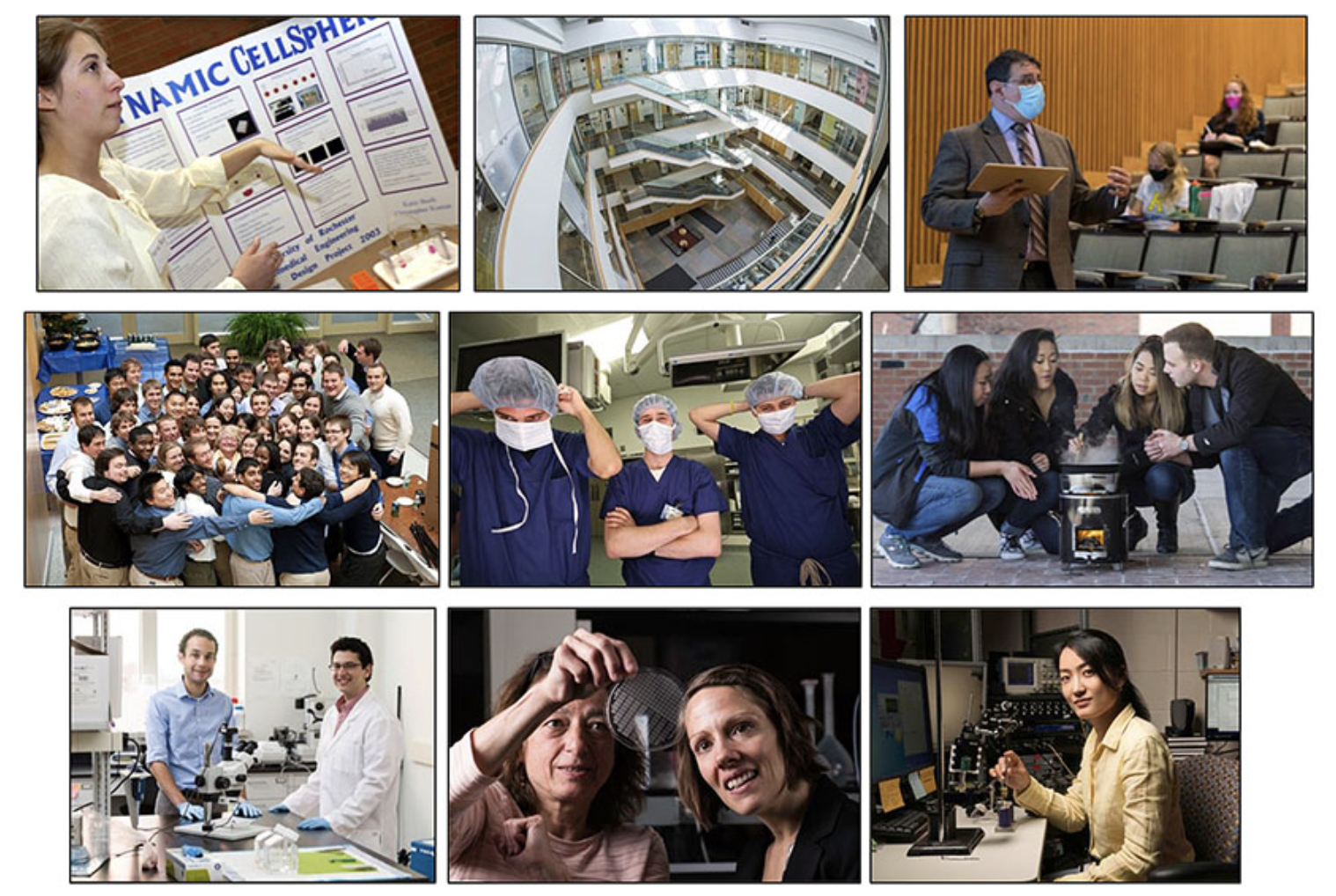
UR BME celebrates 20 years
The Department of Biomedical Engineering (BME) celebrates its 20th anniversary this year. In honor of this milestone, we are highlighting the BME department in this conversation between Diane Dalecki, the current chair of the department and the Kevin J. Parker Distinguished Professor in Biomedical Engineering, and Dean Wendi Heinzelman of the Hajim School of Engineering and Applied Sciences.
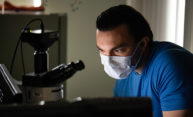
Apt analogies help veteran convey his HIV research
Jeffrey Beard, a biomedical engineering PhD candidate, won this year's Three Minute Thesis competition for his explanation of his research to develop a more affordable way to monitor the condition of 25 million people living with HIV in resource-limited countries.
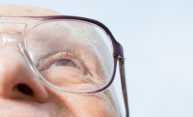
First-ever lab model of human eye offers hope for macular degeneration patients
University of Rochester researchers have created the first 3D lab eye model that mimics the part of the human retina affected in macular degeneration, the most frequent cause of blindness in adults 50 years of age or older.

Chip on a card would detect COVID-19 antibodies in a minute
Researchers in Rochester are developing an optical chip on a disposable card that can detect exposure to multiple viruses within a minute—including the coronavirus that causes COVID-19—from a single drop of blood.
Led by University of RochesterMedical Center researcher Benjamin Miller, the $1.7 million project is funded by the US Department of Defense Manufacturing Technology Program using CARES Act funds through a contract with AIM Photonics.
